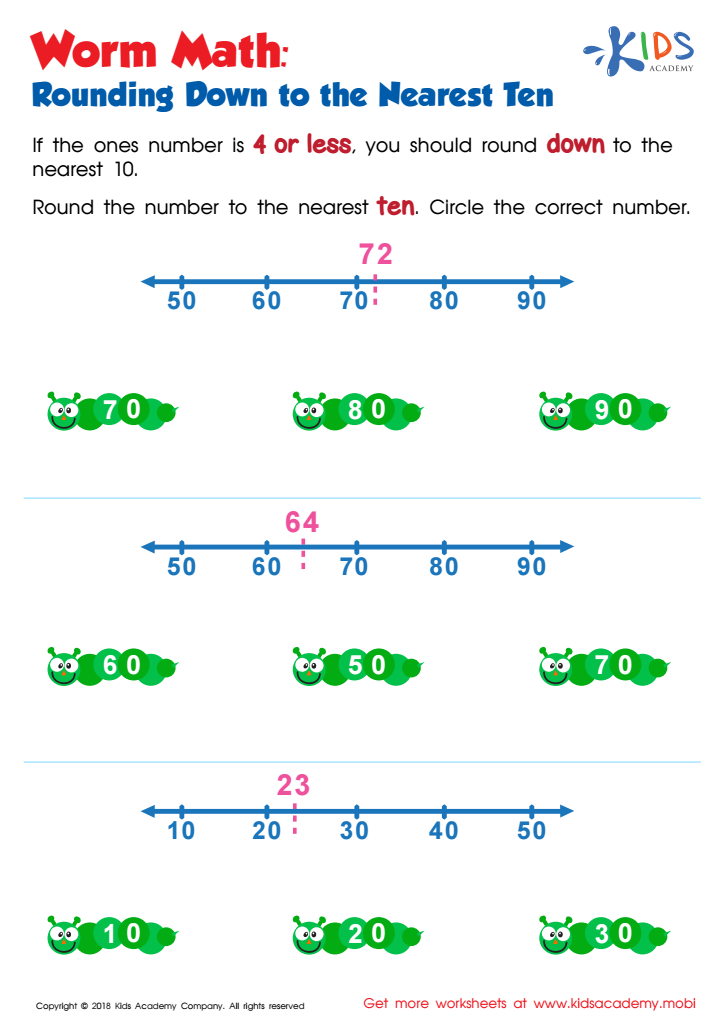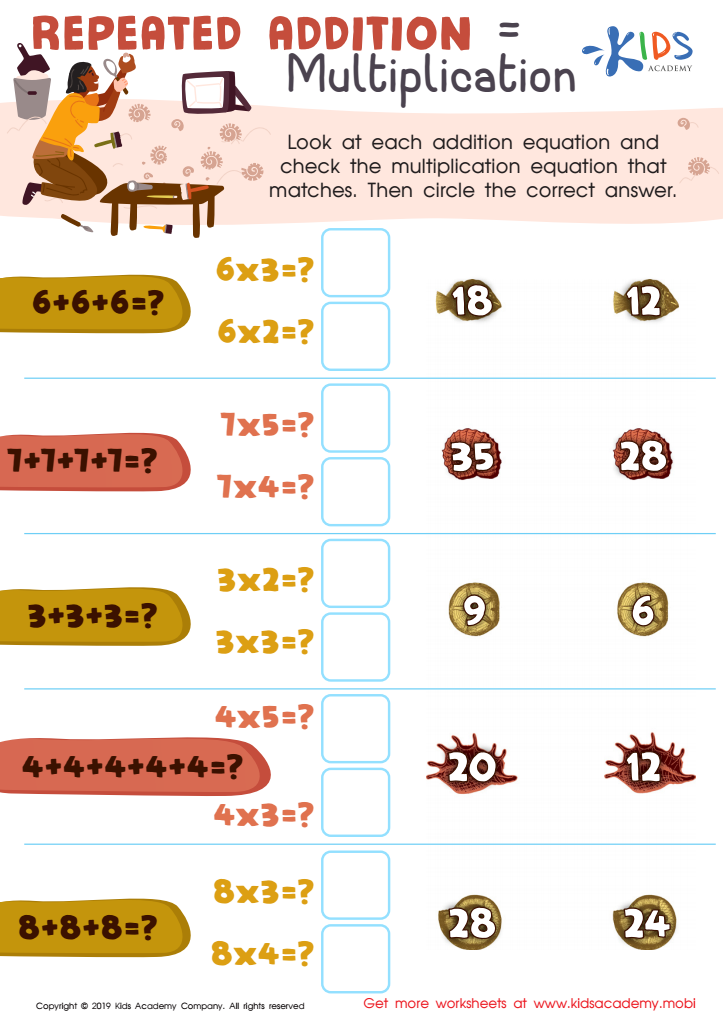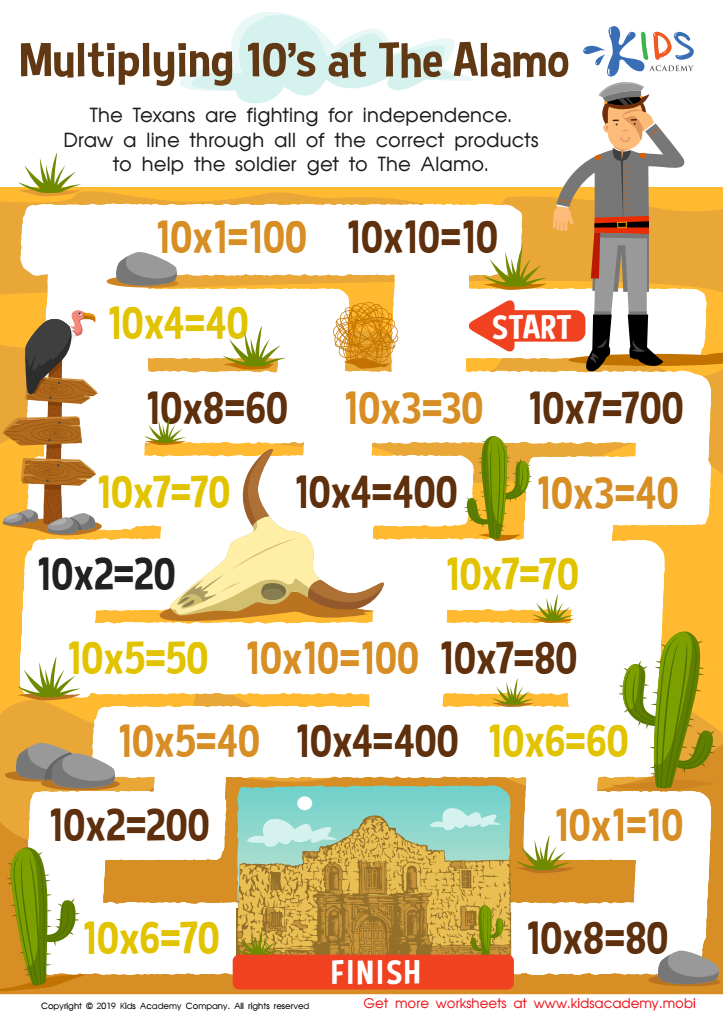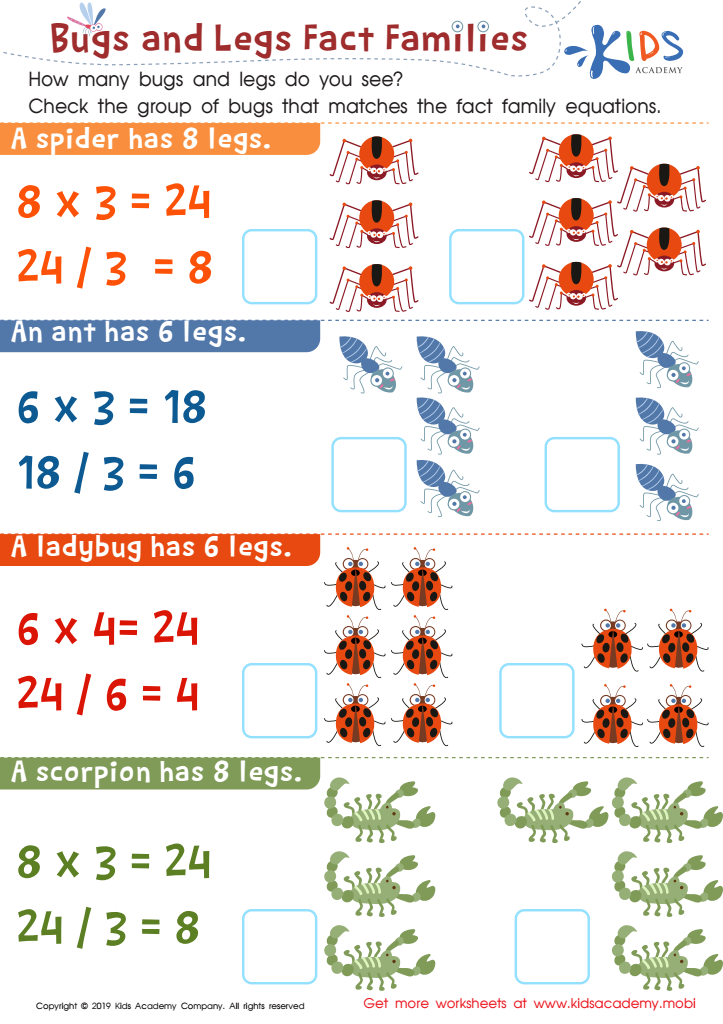Improving number sense Math Worksheets for 8-Year-Olds
5 filtered results
-
From - To
Explore our engaging "Improving Number Sense Math Worksheets" designed specifically for 8-year-olds! These targeted worksheets aim to enhance children's understanding of numbers, helping them to develop essential math skills. Through fun and interactive exercises, learners will tackle topics such as place value, number comparisons, addition, and subtraction. Our worksheets not only foster critical thinking but also encourage problem-solving and analytical skills in a playful way. Each activity is carefully crafted to align with educational standards, ensuring that students build a strong foundation in mathematics. Perfect for home or classroom use, these resources make learning math an enjoyable journey for young learners!


Worm Math Rounding Down to the Nearest Ten Worksheet


Repeated Addition = Multiplication Worksheet


Multiplying 10’s at The Alamo Worksheet


Bugs and Legs Fact Families Worksheet
Improving number sense in 8-year-olds is crucial for their mathematical development and overall academic success. Number sense refers to a child’s understanding of numbers, their relationships, and how they can be manipulated. At this age, children are broadening their math skills, and a solid foundation in number sense is essential for tackling more complex concepts.
Engaging with number sense enhances a child's ability to problem-solve, reason logically, and think critically. When children grasp concepts like place value, estimation, and number relationships, they build confidence in their math abilities, reducing anxiety in future math learning. This foundational skill also supports various real-life applications, from budgeting to measuring.
For parents and teachers, fostering number sense prepares students to engage meaningfully with mathematics across subjects. It equips them for standardized tests, wherein a strong conceptual understanding of numbers often translates to better performance. Moreover, instilling a love for numbers early on can inspire lifelong learning and curiosity about mathematics.
By prioritizing number sense, parents and teachers can help children develop essential skills that support academic success and foster a positive attitude toward math, leading to increased motivation and achievement in school and beyond.
 Assign to My Students
Assign to My Students







%20(1).jpg)














